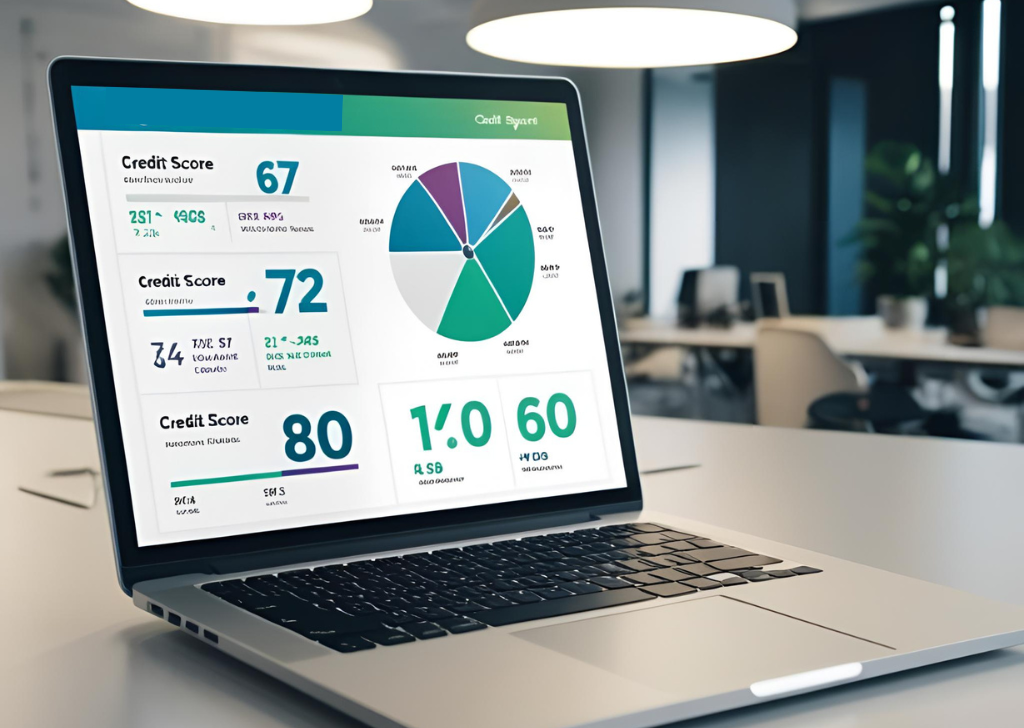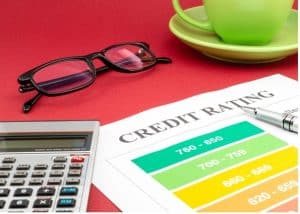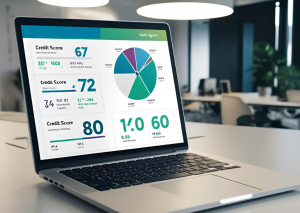Consolidating debt involves combining several debts into one account. This tactic can streamline your life by allowing you to concentrate on a single monthly payment instead of juggling several payments of varying amounts owed to different creditors on multiple dates.
In certain situations, debt consolidation might also lower your overall interest rate, ultimately saving you money.

How Debt Consolidation Affects Your Credit Score
Debt consolidation can impact your credit score and credit report over time. When you use a debt consolidation loan to pay off your debt, you may need to close the original account.
Closing it can shorten your average credit history, which may lower your credit score. However, if you pay your debt consolidation loan on time each month, your credit score will likely improve.
To reduce the risk of missing or making late payments, consider setting up automatic payments.
Using Personal Loans to Consolidate Debt
You can consolidate your credit card debt by applying for personal loans online or over the phone from credit unions or banks. These loans support budgeting because they offer regular payments and flexible terms.
To save time, some financial institutions directly pay your creditors. Loan terms, origination fees, and your credit score influence the interest rates.
Lenders base decisions on income, credit score, assets, and total debts. They may also consider factors such as how long you have lived at your current address, your employment history, and your education level. They are giving approvals that traditional banks might not offer.
Still, there are downsides, like shorter loan terms and added origination fees. If you have good credit, your rates may be competitive, but if your credit is poor, you could face higher rates.
Balance Transfer Cards as a Strategy
A balance transfer card lets you consolidate credit card debt by moving balances from interest-bearing cards to a new one with a 0% introductory rate. This can increase your credit score.
You can pay off or reduce your credit card balance without interest during the promotional period, which makes each payment more effective than if you were also paying interest.
When using a balance transfer card, you must calculate the monthly payments required to eliminate your debt before the promotion ends and interest kicks in.
Still, your credit score might drop temporarily before improving. Adding a large balance to your new card could raise your credit utilization above 30%, which affects your score.
Also, applying for a new account creates a hard inquiry on your credit report, which can hurt your score.
But if you continue to pay down your credit card debt on the new card, the benefits outweigh the short-term setbacks. As you reduce and eventually pay off your debt, this method helps lower your credit usage and adds consistent, on-time payments to your credit history.
Choosing the Right Consolidation Strategy
Not all strategies work for everyone. When choosing a consolidation plan, consider interest rates, fees, repayment terms, and the effect on your credit utilization and credit mix.
The strategy you choose influences your total costs. A longer repayment period might increase interest charges; so a lower rate does not always equal bigger savings.
Check repayment terms and loan durations carefully. For example, personal loans may take longer to pay off than a credit card balance transfer.
Also, look at whether early payoff saves you money or if prepayment penalties reduce the benefit. Paying off or transferring credit card balances using a personal loan can lower your credit utilization and boost your credit score.
Don’t Overlook the Downsides
Closing credit card accounts after consolidating could hurt your credit mix and raise your credit utilization ratio.

Even though your score may dip at first, it will likely increase as you keep paying off debt. Always consider these factors when selecting a consolidation method.
Debt Relief Organizations and Programs
Debt relief companies offer consolidation plans similar to traditional loans. A third-party lender partners with the company to roll your credit card debts into one loan with a reduced interest rate.
Working directly with a debt relief agency can help you secure better loan terms and avoid late payments, both of which can boost your credit score.
In the long term, repaying the loan helps reduce your credit usage and strengthens your credit score.
Using Home Equity to Consolidate Debt
If you own a home, you can borrow against your equity with a home equity loan. You might also consider a cash-out refinance if it lets you replace your current mortgage with a new one at a lower rate.

With cash-out refinancing, you get access to part of your home equity in cash. You can then use this money to pay off existing debts.
Because these loans are secured by your home, they often offer lower interest rates than credit cards or personal loans.
However, they come with a serious risk: if you cannot make your payments, your lender may begin foreclosure proceedings, and you could lose your home.
Carefully weigh the risks before converting unsecured debt into secured debt.
Staying Out of the Debt Cycle After Consolidation
Consolidating credit card debt may reduce your interest payments and improve your financial situation. But without responsible money management, you could fall back into debt.
Create a realistic budget, build an emergency fund, and stay disciplined with bill payments. Avoid taking on new debt if you want lasting results.
Set aside part of your monthly income for emergencies, so you don’t need to rely on credit cards when unexpected expenses arise.
After consolidating, consider freezing or closing credit accounts to avoid racking up new balances.





